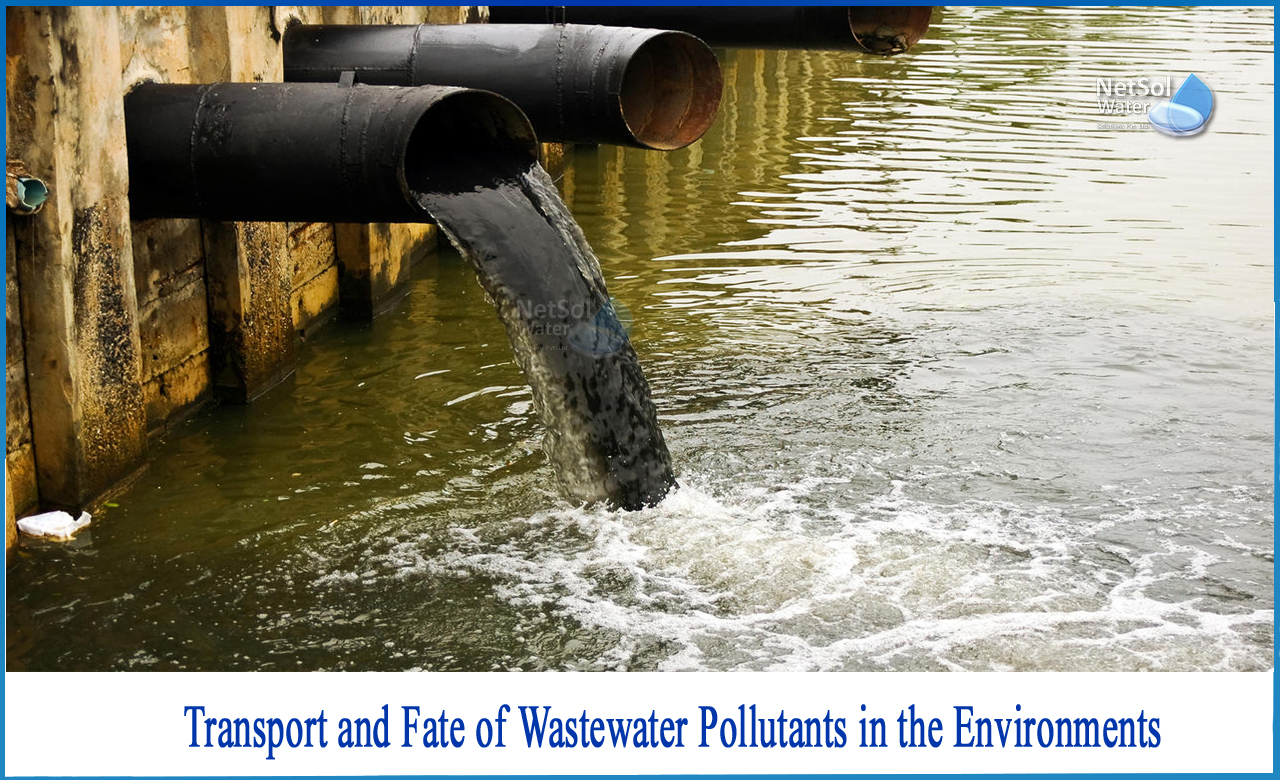What are Transport and fate of Wastewater pollutants in Environment?
Wastewater treatment plants (WWTPs) are major sources of toxins in streams, and their persistence determines how far they move throughout the river system, generating worries about their environmental impact. Wastewater pollution is an increasing concern to people and marine life, accounting for the majority of coastal contamination around the world.
An estimated 80% of wastewater – including human excrement – is dumped into the environment without treatment, releasing a slew of dangerous pollutants into the ocean and putting humans and coral reefs at risk.
The fate of wastewater in the environment is determined not only by internal processes but also by chemical partitioning between compartments. Chemicals may be exchanged between air and water or soil, for example.
Basics of Wastewater Transport
The fate and transportation of pollutants are influenced by a variety of processes (e.g., diffusion, advection, bioturbation, and degradation).
1: Advection: The solute simply flows with the neighboring fluid's velocity.
2: Diffusion: Because molecules bounce around and off one another at random, they also spread at random (typically a gradual process), causing the solute to dilute as it distributes across a larger area/volume.
3: Dispersion: Because of random fluctuations in the flow (due to turbulence or barriers), solute molecules spread throughout a larger area/volume (typically much faster than diffusion) and dilute the solute.
4: Trapping: Solute can become stuck in immobile flow zones (pockets, for example, or by sorption to borders), causing it to move slower than the mean flow.
Transport and Fate of Wastewater Pollutants
Emerging pollutants enter wastewater through a variety of routes, including consumer product disposal and use, agriculture runoff, and harmful spills. Emerging pollutants are delivered into surface waterways from the WWTP effluent, where they may have demonstrable effects on aquatic life as well as on human life at low quantities.
Various abiotic and biotic activities regulate the movement and fate of pollutants in soil, and they are influenced by a variety of parameters such as soil qualities, chemical compound properties, ambient properties, and so on. Hydrolysis, oxidation, reduction, and photo deterioration are the four types of abiotic processes. The most important mechanisms for the passage of contaminants through the soil are leaching, volatilization, suspension, and erosion. Transport control systems work in the same way as those that regulate species supply and, as a result, pollutant destiny.
Proper discharge of Wastewater
Conventional onsite wastewater treatment systems efficiently minimize or eliminate most human health or environmental concerns caused by contaminants in wastewater when properly designed, sited, installed, and maintained.
To sequester or attenuate pollutants of concern, most conventional systems rely on physical, biological, and chemical processes in the septic tank. Pollutants of concern should be removed or treated to acceptable, permit specified levels (levels authorized by the National Pollutant Release Elimination System of the Clean Water Act) before discharge when point discharges to surface waters are permitted.
What can we offer?
Netsol Water is one of India's major Water and Wastewater management company, specialized in the design, manufacture, and delivery of custom-made treatment systems, industrial machinery, and luxury amenities for the water and wastewater industry. We can customize WTPs/WWTPs that will cater to all our needs and at the same time effectively treat different types of wastewater.



